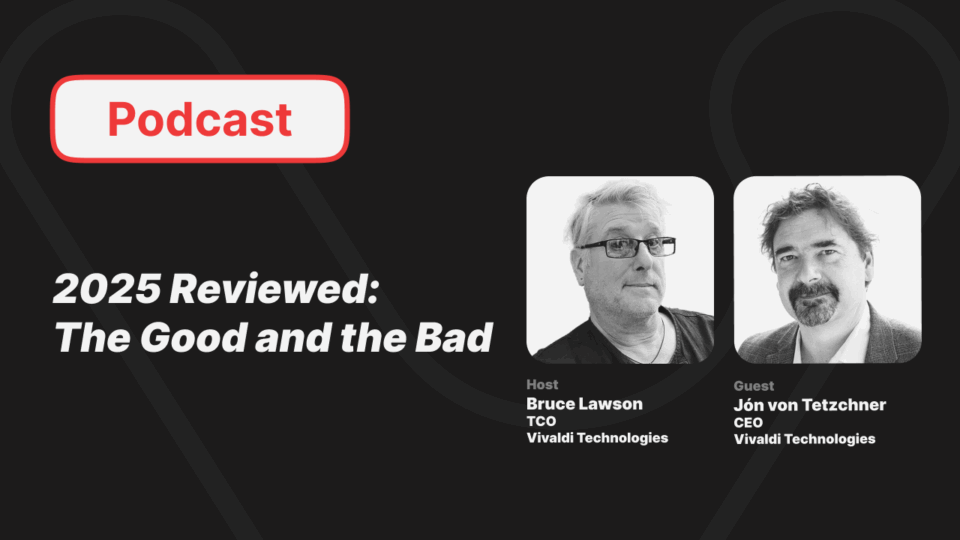
Read this article in 日本語.
This year, we were back at the Web Summit conference — a vibrant tech space that brings together over 70, 000 people in Lisbon, including policymakers, heads of state, and the founders and CEOs of technology companies and fast-growing startups.
More than your regular tech-conference, Web Summit is full of witty keynotes, innovative workshops, an exchange of ideas among tech-visionaries and startup innovators, and electrifying connections made over coffee and code.
Among the speakers was our CEO, Jon von Tetzchner. In a fireside chat with Journalist and Broadcaster, Andy O’Donoghue, Jon shared his thoughts on the future of browsers as its usefulness continues to go beyond everyday browsing. He shined a light on the increasing need for browser customization tailored to the individual’s needs and how we work at Vivaldi to achieve this.
The browser is getting more powerful. While other browsers continue to move in the same direction, which is all about simplification or sadly in many cases, data collection; we decided the need to do things differently. With Vivaldi, we want to provide a browser that adapts to your needs as a user focusing on the individual instead of just everyone.
By highlighting how a browser can be used for more than just browsing, they talk about how it’s is a powerful tool here to stay.
Listen on as Jon takes his listeners through his vision for the future of browsing, some lessons learned from his past tech-ventures, and how they guide him today.
In another conversation with Editor at Dataconomy and Startup Founder, Stewart Rogers, Jon delves into the internet’s current era of surveillance and data collection.
He reminds us that when the internet started, its sole purpose was communication and exchange of information. Jon’s work ties back to his ultimate goal: to get as many people online as possible with equal access to information and services; calling it “the great equalizer”.
When someone takes the internet and turns that into a surveillance economy which is [contrary to its original purpose], that’s insulting and wrong.
So, is there an ethical, viable business model on the web?
Jon thinks there could be, but like all good things – it requires a change in policies and hard work. His passion for the ethical use of the internet translates into how he spends his time building products like Vivaldi and having conversations with those who can influence change.
My view is that there should be rules and regulations around the use of data. I’ve actually tried to push this in my writing by contacting the EU and others, because I really think that there’s reasonable use of data to provide for the service and then there’s unreasonable use. Which is using it for everything else that is not related.
Jon brings up Google Maps as an example, “It’s nice to have everyone’s movements, but that doesn’t mean that the data should be used for everything else. To analyze our patterns and where we are going—that’s not the right way to use the data.”
Even if it’s easy to forget how much of our digital data is accessed by others, it shouldn’t be hard to ignore the need for safety around how it’s used.
Take a listen as Steward and Jon discuss the current state of our data and the need for guardrails around its collection and usage.
Altogether, being at Web Summit was an incredible experience. The conference wasn’t just about the exhilarating talks, but also about getting to know and building connections with inspiring people from industries influenced by technology.
We hope you enjoy listening to these fireside chats as much as we did. Have you got any questions or takeaways from Jon’s talks? Feel free to share them with us in the comments.


